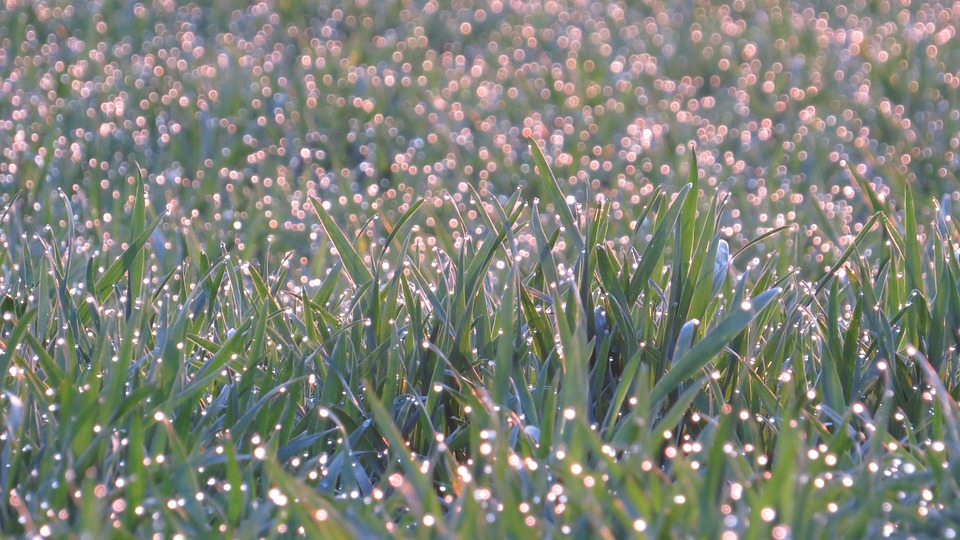Proper lawn irrigation is an essential aspect of maintaining a healthy and vibrant landscape.
It involves the controlled application of water to ensure that your lawn receives the necessary moisture it needs to thrive.
In this article, we will explore the importance of implementing a proper irrigation system for your lawn, as well as gather insights and wisdom from professional landscapers.
The Benefits of Proper Lawn Irrigation
1. Preserves Water: A well-designed and properly functioning irrigation system helps optimize water usage.
It ensures that water is distributed evenly and only where it is needed, preventing wastage and reducing your water bills.
2. Healthy Growth: Adequate hydration is crucial for the healthy growth of your lawn.
Consistent watering promotes a deep root system and helps strengthen grass, making it more resilient to environmental stresses such as heat, drought, and disease.
3. Enhanced Aesthetics: A lush, green lawn is often seen as a symbol of beauty and attractiveness.
Proper irrigation helps to maintain a vibrant lawn with even color and texture, creating an inviting and visually appealing outdoor space.
4. Weed Prevention: Proper watering techniques can help suppress weed growth.
By ensuring that your grass is receiving sufficient water, it can thrive and outcompete weeds, reducing the need for herbicides and manual weed removal.
The Role of Professional Landscapers
Professional landscapers play a crucial role in helping homeowners create and maintain a well-irrigated lawn.
Their expertise and experience enable them to identify and address specific irrigation needs effectively.
1. System Design: Landscaping professionals possess the knowledge required to design and install an irrigation system that is tailored to your lawn’s specific requirements.
They consider factors such as soil type, slope, and plant type to determine the ideal layout and components for optimal water distribution.
2. Efficient Watering Techniques: Professionals understand the importance of using proven watering techniques to maximize efficiency.
They utilize techniques such as drip irrigation and zoning, which ensure that water is delivered directly to the roots of plants, minimizing water loss due to evaporation and runoff.
3. Maintenance and Repairs: Landscapers provide regular maintenance and inspection of your irrigation system.
They can identify and repair leaks, broken sprinkler heads, or other malfunctioning components to ensure that your lawn receives the right amount of water.
4. Irrigation Scheduling: Proper timing of irrigation is vital to avoid water stress and waste.
Professional landscapers can develop a customized watering schedule that takes into account the climate, season, and specific needs of your lawn, ensuring efficient water usage and promoting optimal growth.
FAQs
Q1. How often should I water my lawn?
A1. The frequency of watering your lawn depends on various factors such as soil type, weather conditions, and grass type.
Generally, it is recommended to water deeply and infrequently, allowing at least one inch of water per week.
Q2. What is the best time of day to water my lawn?
A2. Watering in the early morning is typically the best time to irrigate your lawn.
This allows plants to absorb moisture before the sun’s intensity increases, reducing the risk of evaporation.
Avoid watering at night, as it can promote fungal growth due to extended periods of wetness.
Q3. How can I ensure that my irrigation system is efficient?
A3. Regular maintenance is essential to maintain an efficient irrigation system.
Check for leaks, clogged or misaligned sprinkler heads, and ensure that the system is adjusted properly for even water distribution.
Consult a professional landscaper for a thorough evaluation of your system if needed.
Q4. Can I overwater my lawn?
A4. Yes, overwatering can be detrimental to your lawn’s health.
It can lead to shallow root growth, increased vulnerability to pests and diseases, and wasted water.
It is important to find the right balance and adjust irrigation accordingly based on the moisture needs of your lawn.
Q5. What are the signs of inadequate irrigation?
A5. Signs of inadequate irrigation include wilting, yellowing, or crunchy grass, as well as footprints that remain visible on the lawn after walking on it.
Dry patches, uneven growth, and increased weed presence may also indicate a lack of sufficient watering.
Q6. Can I install an irrigation system myself?
A6. While some basic irrigation systems can be installed by homeowners, it is advisable to consult a professional landscaper for optimal results.
They can accurately assess your lawn’s needs and ensure a proper installation that maximizes water efficiency and overall effectiveness.




